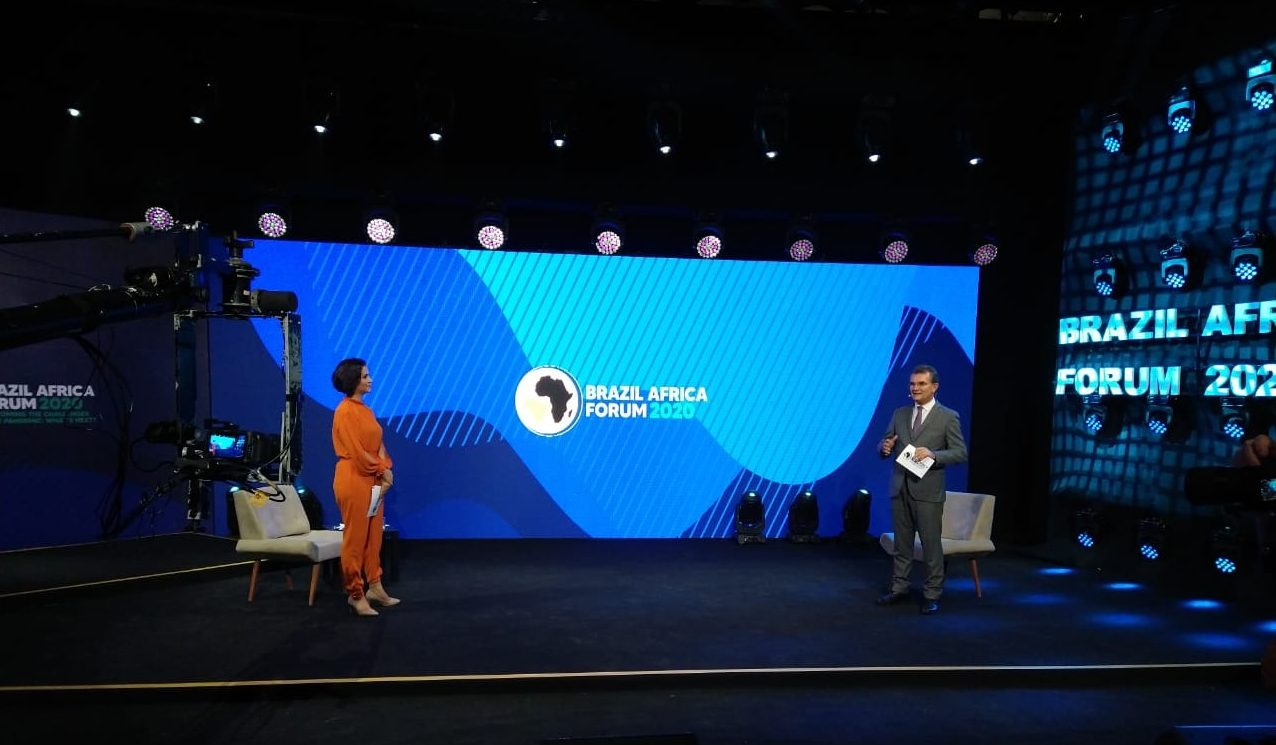Jorge Werthein, Special Advisor to IICA’s Director General, Manuel Otero, represented IICA at the latest edition of the forum held in São Paulo, the first in-person event since the COVID-19 pandemic, which was entitled “Sustainable Cities: Global challenges, local solutions”.

São Paulo, Brazil, 2 December 2022 (IICA) – The Inter-American Institute for Cooperation on Agriculture (IICA) participated in the Brazil Africa Forum, a key discussion between Brazilian and African leaders on issues of global and mutual interest, sharing its experiences in South-South and Triangular Cooperation and underscoring the leadership and relevance of the Brazilian Agricultural Research Corporation (EMBRAPA) in establishing permanent mechanisms for identifying new opportunities in intercontinental collaboration.
Jorge Werthein, Special Advisor to IICA’s Director General, Manuel Otero, represented IICA at the latest edition of the forum held in São Paulo, the first in-person event since the COVID-19 pandemic, which was entitled “Sustainable Cities: Global challenges, local solutions”.
Werthein spoke at the session “Urban Agriculture: Green cities in expansion”, moderated by journalist Jamil Chade, during which cases and policies were discussed to incentivize backyard, rooftop and balcony food production, community gardens in empty lots and parks, hydroponics, waste management and ways to guarantee food security for families in times of crisis and shortage.
Werthein used as an example the Brazilian initiative to create school gardens and stressed the importance of introducing public policies and training to expand these programs so that students are able to produce healthy foods for self-consumption while learning about and valuing farming activities.
He also highlighted EMBRAPA’s experience and leadership in developing modern, sustainable agriculture in Africa and its connection with food security, and also described the importance of initiatives such as ProHuerta, the public policy program promoting agroecological productive practices for self-sufficiency, food education, farmers markets and alternative markets that are inclusive of farming families, introduced by the National Agricultural Technology Institute (INTA) of Argentina to countries like Haiti.
Werthein shared the table with Kayode Fayemi, governor of the state of Ekiti and president of the Nigeria Governors’ Forum, and César Rizzi, Technical Superintendent of Campo, a Brazilian consultancy firm.
“The answer to profound crisis lies in ever stronger cooperation between countries. I bring the message of IICA’s Director General, which is that cooperation takes place between equals, which is the essence of South-South Cooperation, in which we strongly believe, because it means building bridges. That is why we prioritize dialogue between the Americas and Africa”, explained Werthein, who also shared the results of the Summit of Ministers of Agriculture of the Americas and Africa held in June on the initiative of IICA, the Alliance for a Green Revolution in Africa (AGRA) and the African Union Development Agency – New Partnership for African Development (AUDA-NEPAD).
At the forum, agricultural authorities from 40 countries in Africa and the Americas pledged to create specific mechanisms to promote mutual learning and joint action between the two continents based on science, technology and innovation.
Following the meeting of ministers, IICA’s Director General participated in the annual AGRF summit in Rwanda, an important African forum that promotes the continent’s agricultural and food agenda, in which he emphasized that joint cooperation between Africa and the Americas is key to global food security.
Werthein also reported on the initiatives of the international organization specialized in agricultural and rural development for the promotion of rural connectivity and the digitization of the agricultural sector.
The 2022 Brazil Africa Forum, which was attended by Celso Amorim, former Brazilian Minister of Foreign Affairs and Defense, in representation of President-elect Luiz Inácio Lula da Silva, in addition to mayors, governors and representatives of the private sector and international funding agencies, included as key topics Infrastructure, Health and Sanitation, Urban Mobility, Renewable Energies, Waste Management, Urban Agriculture, Public-Private Partnerships, Sports and Creative Industry.
“Of the ten fastest growing economies, seven are in Africa. Today, the population is around 1.4 billion inhabitants and that is expected to grow to 3 billion African residents by 2050, so it is important to look to that continent, where there is enormous potential”, expressed João Bosco Monte, President of the Brazil Africa Institute and a top international expert on Africa.
More information:
Institutional Communication Division.
comunicacion.institucional@iica.int











